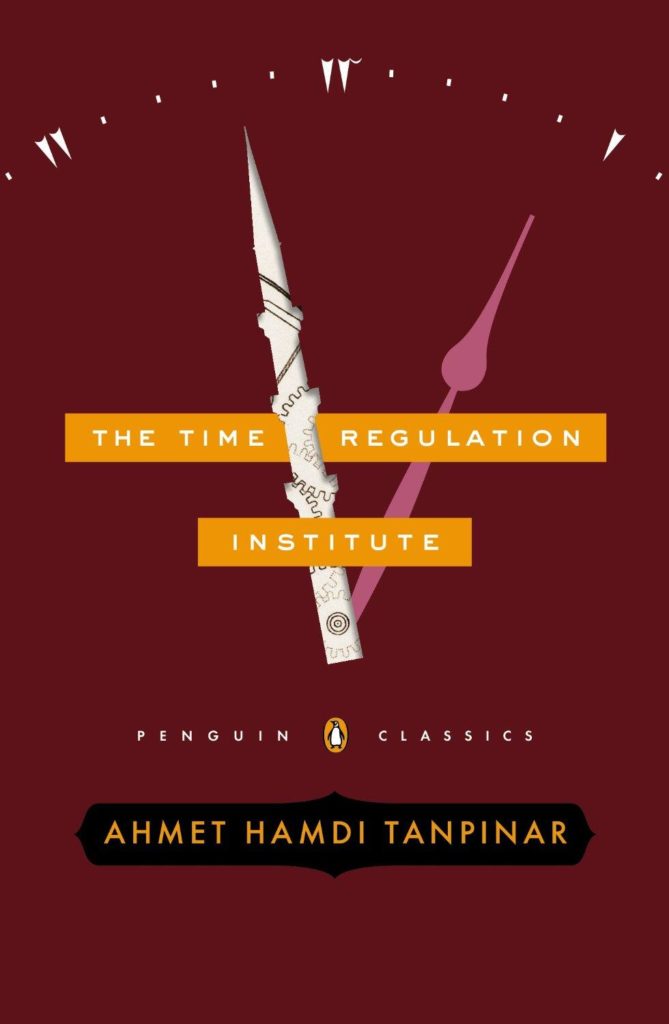Those of us who are only fluent in English are so fortunate to have had this book translated from the original Turkish.
The book incisively mocks bureaucracy from the point of view of clocks. The main hero is Hayri Irdal, who guides us through the strange world of the Time Regulation Institute. In this Turkey, there is an entire department devoted to synchronizing all the timepieces in the country.
Most of my commentary is from the beginning of the book since it gets more complex as it goes along. Plus I don’t want to give anything of this intricate story away.
There is gallows humor:
The scholar, though, turned out to be rather irksome. Finding the tomb of a man who never existed in mortal form is more difficult than you might imagine, as is surviving a vigorous debate with a foreign scholar, even with the aid of an interpreter. We were save first by what the foreign papers called out “Sufi-like attitudes and detached — or, rather,, indulgent — personalities,” and second by the fact that our forefathers had availed themselves of pseudonyms.
After wandering the graveyards of Edirnekapi and Eyup for several days, and visiting the Karacaahmet Cemetery, we were bound to find an Ahmet Zamani Efendi. And so we did. I am not unduly troubled by the minor alterations I made to the identity of the actual deceased. If nothing else, the poor man had his tomb repaired and his name made known: glory and calamity are both at God’s mercy. ~Pg. 5
There is wistful yet wise insight:
The privilege I most enjoyed as a child was freedom.
Today we use the word only in its political sense, and how unfortunate for us. For I fear that those who see freedom solely as a political concept will never fully grasp its meaning. The political pursuit of freedom can lead to its eradication on a grand scale — or rather it opens to the door to countless curtailments. It seems that freedom is the most coveted commodity in the world: for just when one person decides to gorge upon it, those around him are deprived. Never have I known a concept so inextricable from its antithesis, and indeed entirely crushed under its weight. I have been made to understand that in my lifetime freedom has been kind enough to visit our country seven or eight time, and no one ever bothered to say when it left; but whenever it came back again, we would leap out of our seats in joy and pour into the streets to blow our horns and beat our drums. ~Pg. 18
And there is rich description:
Seyit Lutfullah was something else altogether: a ghostly shadow in the void, a mask on loan, a living lie: Imagine the lead actor in a fantastical play who — still wearing his costume and cloaked in his assumed personality — springs off the stage to continue his performance in the crowded city streets. Seyit Lutfallah was such a man. ~Pg. 39
Tanpinar wrote this satirical novel in 1962 and it is still relevant today. His sharp criticism is funny and germane. He writes with a modernity of the West but with the grace and depth of ancient Eastern storytellers.
My thanks to Laura at Penguin for the review copy.
___________________________
Paperback: 432 pages
Publisher: Penguin Classics (January 7, 2014)
Language: English
ISBN-10: 0143106732
ISBN-13: 978-0143106739
Product Dimensions: 7.8 x 5.2 x 1.2 inches

